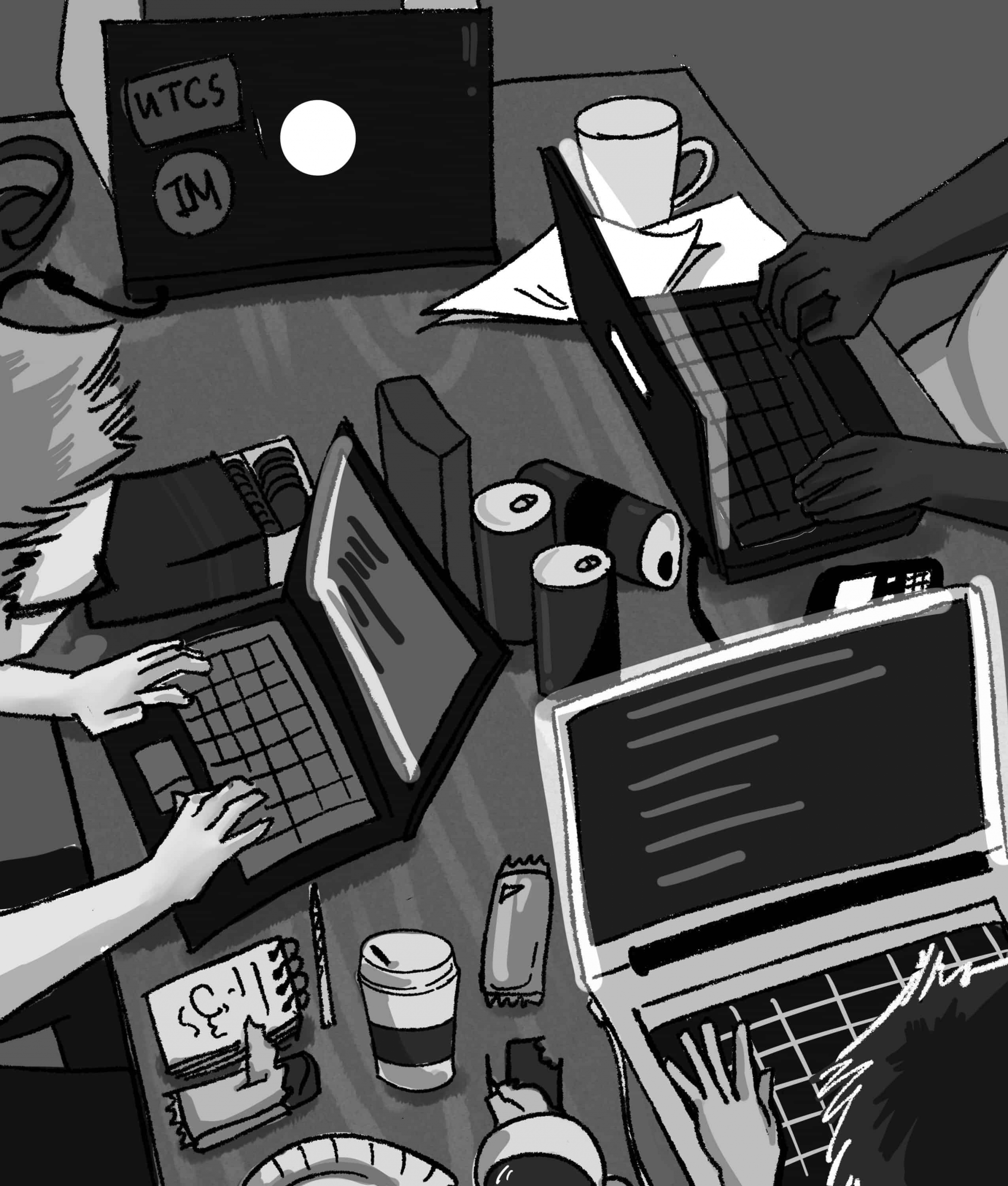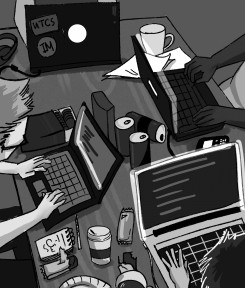On September 27, 500 hackers will arrive at U of T. Over the next three days, they will participate in the university’s first hackathon. The hackathon, called UofTHacks, will include seminars, expos, and one 36-hour hacking session.
A “hackathon” is a “hacking marathon” in which groups of coders come together to build a project over a set amount of time. Some hackathons are collaborative, with each team contributing a specific element to a pre-determined final project. Others, like UofTHacks, are competitive. In a competitive hackathon, teams of hackers compete against each other, each team coding their own project to be presented and judged.
Hackathons generally last no more than 40 hours; short hackathons may only run 10 hours long. At 36 hours, the UofTHacks marathon is relatively long; the experience will probably be exhausting. In anticipation of coder ennui, the organizers have arranged for free food and some entertainment to lift the spirits of the hackers who will be bundled up in the Bahen Centre. There will be movies playing for those who wish to take a break, and there’s talk of hiring a magician.
Ultimately, however, the goal of an enjoyable time might come second to the prestige of winning what will be Canada’s largest student hackathon. Traditionally, a hackathon is a valuable networking opportunity in addition to a place to refine coding technique. The final Hack Expo will allow participants to show off their products and rub shoulders with investors and leaders in the computer science field.
UofTHacks is the brainchild of Sophia Park and Aashni Shah, two U of T computer science students. (Park is also the vice president of the Computer Science Student Union (CSSU). Park says that the idea for the hackathon was born from a desire to inspire a greater sense of community in the CSSU, and that the hackathon is in part meant to draw attention to Toronto as a computer science hub.
“I wanted to make U of T more of a place known for hacking — for our computer science community, ” she says, “Compared to Waterloo, for example — they seem like they have a hacker base. People there are really involved in computer science: it’s a community! I felt like U of T didn’t have that … I wanted to draw people to Toronto. I felt like in Canada, Waterloo is getting all the attention! … I wanted a good community base here.”
The event has succeeded in attracting outside attention to Toronto. Around 100–150 of the hackers attending are expected to be non-local hackers, and the event has attracted major sponsors.
The event is completely free of charge. As of press time, there is still space to register. Four levels of registration are available, and it is possible to attend the expo and seminars without committing to the marathon coding session.
People with little coding experience shouldn’t be afraid to register as a hacker, according to Park. “A hackathon, even for people who know how to code, is a chance to learn,” she says. “If you want to come and learn coding for 36 hours, that’s fine too.”
The hackathon experience isn’t for everyone. “It’s pretty intense!” laughs Park. She then immediately clarifies that the positives outweigh the negatives. “It’s not the most comfortable experience, but still, it’s fun. And it’s kinda rewarding … I feel connected. Like ‘they’re doing it, so I can do it too!’” For U of T computer science students, suffering together can build community and software.



